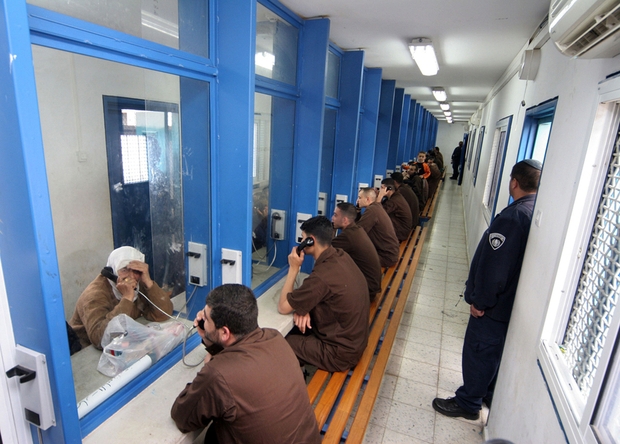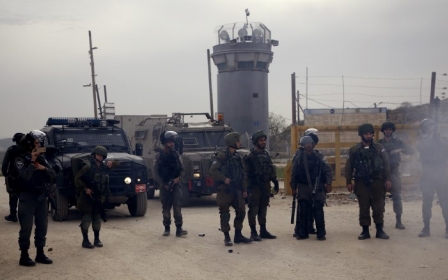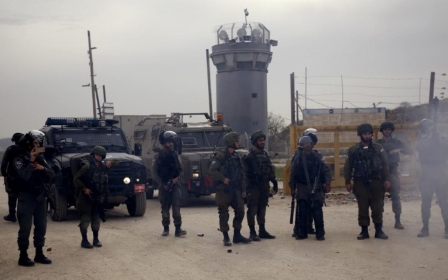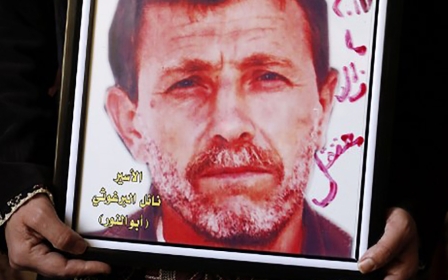Palestinian prisoners end hunger strike after Israel agrees to demands

Palestinian political prisoners ended their hunger strike on Monday after the Israeli Prison Service (IPS) agreed to install landline phones inside prisons and release inmates held in solitary confinement.
In a statement on Monday, the Palestinian Authority-run detainees and ex-detainees affairs commission confirmed that the IPS had agreed to the prisoners' demands.
Among the demands agreed to by the IPS include installation of public phones inside the prisons to allow the prisoners to communicate with their relatives.
Qadri Abu Bakr, who heads the commission, said that the IPS had also agreed to "release Palestinian prisoners from solitary confinement in the Naqab prison".
Bakr added that the IPS agreed to move prisoners who had been deported from the Naqab - also known as the Negev in Hebrew - during an Israeli raid of the prison in March.
The hunger strike lasted eight days, with Palestinian prisoners saying they would end the strike if the IPS agreed to install landline phones in all Israeli prisons.
Bakr also noted that Damon, Ofer and Magido were the first prisons to install landline phones for prisoners.
The hunger strike began after the IPS in February placed jamming devices to prevent prisoners from using smuggled phones - sometimes the only means to contact their relatives.
This led to prisoners going on hunger strike, with Palestinians protesting in towns and cities across the Occupied West Bank and Gaza Strip in solidarity.
The IPS had previously enforced a prohibition on phone communication for the nearly 5,500 Palestinian prisoners it detains.
While letters are allowed, the process involves long delays due to Israeli prison censorship, and are sometimes not received by the prisoners’ families.
Under international law, prisoners are entitled to family visits and communication with their families.
Middle East Eye propose une couverture et une analyse indépendantes et incomparables du Moyen-Orient, de l’Afrique du Nord et d’autres régions du monde. Pour en savoir plus sur la reprise de ce contenu et les frais qui s’appliquent, veuillez remplir ce formulaire [en anglais]. Pour en savoir plus sur MEE, cliquez ici [en anglais].




